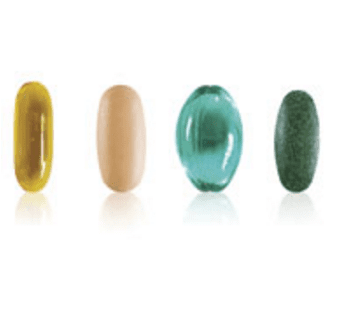Beyond Prenatals
For several years now, the American Academy of Pediatrics has recommended moms give their breastfeeding babies vitamin D supplements (infant formula is supplemented) to decrease the chance of rickets, or softening of the bones. But did you know that vitamin D is essential during pregnancy for both you and baby’s health?
What is vitamin D?
Vitamin D (you may see it as D3 on supplements) is a fat-soluble vitamin and hormone that helps your body absorb calcium. Our bodies make vitamin D from sunshine, and we also take it in from foods or supplements.
Recently, vitamin D deficiencies in pregnancy have been linked to increased risks for gestational diabetes, preeclampsia, vaginal infections and even a greater likelihood of needing a cesarean birth in moms. For babies, D deficiencies have been linked to increased likelihood of cavities, an increase in asthma and respiratory infections, softening of the skull in infancy and decreased bone health by age 9.
Where to find it
It’s hard to determine how much vitamin D we synthesize from the sun. UVB rays are more potent during the summer, and depending on your geographical location, you may experience more or fewer cloudy days throughout the year. UVB doesn’t penetrate darker skin as well as lighter tones, and it doesn’t go through glass. Most experts don’t advise direct sun exposure (without sunblock) because of skin cancer risks.
How much vitamin D you receive from food and supplements can be affected by your body fat percentage, and different supplements and prenatal vitamins vary in dose, purity and absorption.
The only way to really know your personal vitamin D level is to have a blood test to check it—it’s called your serum 25-hydroxyvitamin D level. In fact, the AAP recommends that all pregnant women have this test.
Getting enough
The new recommended daily amount of vitamin D during pregnancy is 600 IU/day. Most prenatal vitamins have 400 IU, so you’ll need to get extra elsewhere. But vitamin D can be too much of a good thing—experts have set safe upper daily limits of anywhere from 2,000 IU to 4,000 IU during pregnancy.
Get tested
If you’re pregnant, ask your healthcare provider about having a vitamin D blood test, and whether you may need to add a vitamin D supplement. Check the amount of vitamin D in your prenatal and supplement with foods known as good sources.
Find it in food
One serving of each of these includes 100 IU of vitamin D:
- Cod liver oil
- Cold water fishes, including salmon, mackerel and sardines (but limit fish consumption in pregnancy to 2-3 servings per week)
- Fortified orange juice, milk and yogurts
- Eggs






Comments are closed.